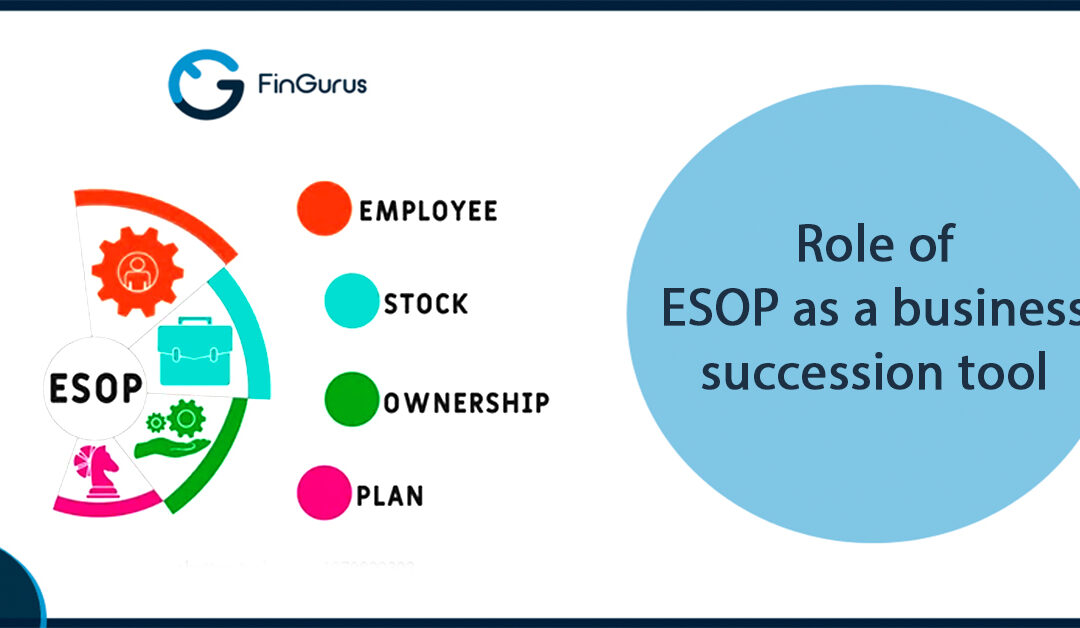Many of us have heard the story of various employees of Infosys becoming millionaires. And, undoubtedly, many have not believed them since this seemed too real to be true! Nevertheless, this is true!
But how did this happen? Well, this was possible owing to a tool called ESOP or Employee Stock Ownership Plan.
ESOP is a system in which the employees of a company (mostly, startups) are provided with ownership interests in the organization via stock options. In most cases, the stock options are offered as a part of the compensation package to the employees when the company cannot afford to pay huge salaries.
With time, this tool has gained prominence, especially because it ensures mutual benefit to both the employer and the employee. Further, the Finance Minister, Nirmala Sitharaman’s emphasis on ESOP in the Second Finance Budget has helped evolve ESOP as a powerful business succession tool.
Intrigued? Then, delve into the following sections and know more about ESOPs.
What is ESOP?
Before we move on to other intricate ideas, let’s have some ideas on ESOP.
ESOP (or Employee Stock Ownership Plan) is an employee benefit scheme that lets the employees enjoy ownership rights in the company he/ she is working. This means the employees are given the right to acquire the organizations’ shares. However, note that it is completely up to the employer to decide who gets to avail these stock options.
In most cases, the stock options are provided to the employees for free or low rates, at a predetermined cost (or the cost as per the potential market rate). Further, these options can be exercised after a predetermined time period.
Why do companies offer ESOP?
Now that you have some idea of ESOP, it’s time we understand why companies offer stock options to their employees.
The phenomena of ESOP are mostly used by startups to bring onboard the best talents and help retain them. But, as these newbie companies fail to offer attractive compensation packages, having experienced and talented employees join the team becomes a difficulty. So, the company then offers stock options to these employees, showing that the organization is willing to share its prosperity with the employees. These stock options, therefore, form a part of their salary package.
Moreover, as the stock options can be exercised on future dates, it helps in ensuring the long-term commitment of the employee. On the other hand, acquiring the company’s stocks creates a sense of belongingness and ownership in the employees.
Understanding the working of ESOP
The working of the ESOP is based on the ESOP terms and conditions.
In most cases, the employee gets the option to exercise the stock options after a certain number of years. The date on which the employee can implement his right to stock options is referred to as the vesting date. Nonetheless, it is not mandatory that the employee has to vest fully on that specific date. One may also choose to vest partially over the vesting period.
Let’s take an example to help in better clarity.
Suppose an employer is offered 1000 shares on 31st March 2018 and it can be exercised in phases such as 20% on the completion of the 1st year, 30% by the ending of the 2nd year and the rest by the completion of the 3rd year from the date on which the options were provided.
So, in this case, the employee can exercise 200 shares by 1st April 2019, the next 300 shares within 31st March 2020 and the rest 500 shares by March 31st, 2021.
Moreover, do note that the employees are provided with a time period within which the employee needs to exercise his stock options. Once the period lapses, the employee loses his vesting rights.
ESOP from an employee’s perspective
Though it is true that the employees cannot make good money right after joining the startup, they are offered the option to acquire the company’s stocks and shares at free or concessional rates. This lets the employee invest less and earn more, helping promote overall wealth generation. Further, it also helps the employees with the thought of earning a lump sum in the near future.
Most importantly, acquiring stock options of the company makes him feel that he is a part of the company. And this makes him put more effort and perseverance to ensure the success of the startup. Besides, with ESOP, the employees can avail better job satisfaction and job security.
ESOP from an employer’s perspective
Mostly used by startups, the ESOP helps the company hire experienced and niched employees to ensure its prosperity. As the budding companies are cash-strapped and cannot afford to provide good salary packages, they offer stock options to share the future prosperity of the organization.
ESOP helps keep the employees motivated. Moreover, it enhances the dedication and helps them work harder for the well-being of the company, which eventually, helps the company’s stock prices soar. Consequently, appreciation of the value of the company shares automatically helps the company get on track.
Further, ESOP is also a great way to reward the employees without having to offer them high salaries, in the beginning. This helps the startups to invest the liquid cash for other purposes.
Tax Implications associated with ESOP
As per the Indian tax laws, ESOP associates taxation. This means the employees have to pay taxes once they are allocated the stock options. Given below are two cases in which ESOP attracts taxation.
- When the employee tries to exercise the stock options: In this instance, the ESOP is considered as a prerequisite and is thus taxable. The difference between the exercise price and the FMV on the mentioned date of exercise is taxed as a perquisite. FMV or Fair Market Value is the price at which the employee originally bought the shares.
- When the employee tries to sell the shares: After exercising the stock options, an employee may want to sell the shares. If the employee sells the shares at a price higher than FMV on the date of exercise, he will be liable to pay capital gains tax. The period you hold the shares will determine the capital gains tax.
Key aspects to note before signing in for ESOP
- It is important that the employees make sure that the documentation regarding the present and future value of shares is as per the tax rules.
- ESOP reduces the founder’s shareholding and in case the company is an unlisted one, it wouldn’t be a lucrative deal to sell shares. This might lead to clashes between the employee and the employer, which can, eventually, lower the value of shares.
Conclusion
Originally, the ESOPs were provided to the senior employees of the company as a token to appreciate their hard work. However, in modern times, it is used as a business succession instrument by startups, who cannot offer attractive compensation packages yet want to hire promising talents.
However, do note that ESOP also includes certain negative sides like not having a profitable market to sell the shares, the listing of the startup is delayed, etc. Therefore, try to keep these aspects as clear as possible in the documentation and keep the process hassle-free.
For more information, you can contact FinGurus!

